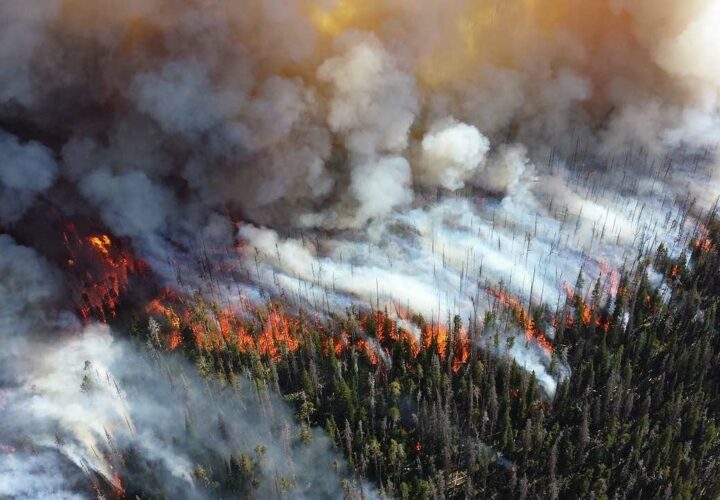Nursing homes in the Western U.S. work together as they grapple with evacuations in a natural disaster.
It was a night in early September in Northern California, wildfires were raging, and Linda Trevino, administrator of Country Crest Post-Acute in Oroville, and her staff began evacuating 56 residents from the nursing home.
Trevino is all too familiar with fires.
When she was an administrator at a nursing home in Paradise, California during the 2018 Paradise fires, she said, “we lost our facility, and most of my staff lost their homes, including myself.”
Now almost two years later, as Trevino faced another fire and another evacuation, she knew there was no time to waste. A few families picked up their loved ones and evacuated them from Country Crest Post-Acute. But residents were also relocated by the staff, who transported them in personal vehicles and the facility’s van.
One positive, Trevino said, was that her facility in the evacuation zone didn’t have to face this immense challenge alone: Other nursing homes in safer areas sent vehicles and helped transport evacuees out of the county to nursing homes in cities of Northern California, from Sacramento and Red Bluff to Williams and Chico.
For facilities that were on the edge of a mandatory evacuation zone, like Healdsburg Senior Living in Healdsburg, this teamwork was also instrumental. Healdsburg Senior Living Marketing Director Tony Fisher said there were several nights when the staff were on high alert for a possible evacuation about a month ago, and some families were able to pick up their loved ones, but many were not.
So, prior to the anticipated evacuation warnings, Healdsburg Senior Living, which evacuated roughly 100 residents about three years ago due to wildfire, partnered with other facilities where residents could stay in case of an evacuation.
“It was great having people [from other facilities] on board that wanted to be part of the solution,” Fisher said. “In the world of our industry, it’s very competitive and everyone wants a full building … then you get into a crisis, and we’re all brothers and sisters working together.”
In recent years, fires have become larger and more intense, posing major threats to fire-prone communities and long-term care facilities in those areas.
As wildfire season stretches on with historic blazes in the West Coast of the United States, long-term care facilities in affected areas must relocate their residents to safety. According to the California Department of Public Health, 117 patients have been evacuated from 10 nursing homes in the state since Aug. 1. And most have returned to their facilities as of Sept. 22.
Thirty residential care facilities for older adults have evacuated 1,302 residents as of Sept. 22 due to the recent wildfires, according to the California Department of Social Services.
One of them was Pacific Pines in Angelus Oaks. There, Integrated Elder Care CEO Ramon Acereto and his staff knew an evacuation order was bound to take effect. So they conducted evacuation drills and packed the personal belongings of the residents ahead of time as wildfires blazed in surrounding areas.
When officials issued the mandatory evacuation order earlier this month, Acereto said the staff had about two hours to evacuate more than 10 residents who are physically frail, some of whom live with dementia.
“They couldn’t make sense of what was going on,” he said of residents with dementia. “Most of them were quiet, just taking it in and following directions to the best of their ability.”
The staff assisted most residents into a small fleet of vehicles, along with a few others in the company van packed with personal belongings, medication and supplies within 35 minutes, and relocated them to an unoccupied company building in the neighboring city of Redlands.
Acereto noted that the behavioral symptoms of residents of Pacific Pines with dementia deteriorated when they relocated to the new building. “Some of them had outbursts which I had not seen since they had [first] moved into Pacific Pines,” he said. On the other hand, those who tended to be quiet became more withdrawn. And he is hopeful that the residents may return to the facility in Angelus Oaks by next week.
Trevino also saw the detriments of the evacuation for residents with dementia, she said, as they depend on the care of familiar staff members at the facility, especially when the pandemic has already restricted them from any personal touch with their families.
While Country Crest Post-Acute sustained smoke damage from the wildfire, the facility has since been repaired and cleaned. Residents began returning to the nursing home on Sept. 14, undergoing COVID-19 testing and 14 days of quarantine.
For the residents with dementia who have returned to Country Crest Post-Acute, “they’re looking very exhausted,” Trevino said. “They’re more confused. It’s really had a negative impact on their lives.”





